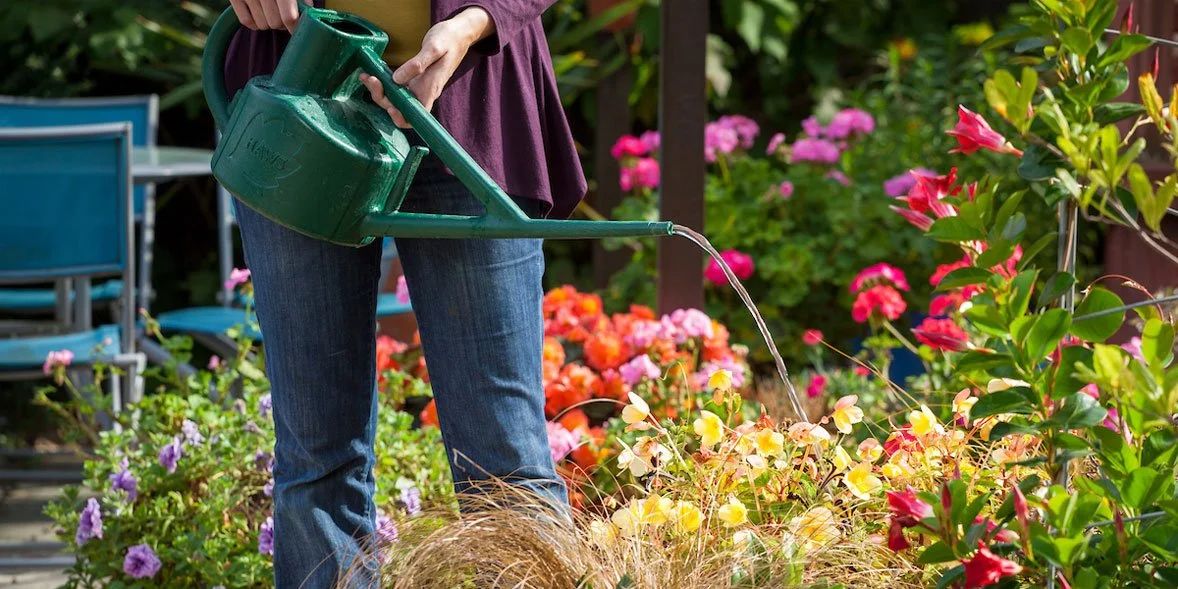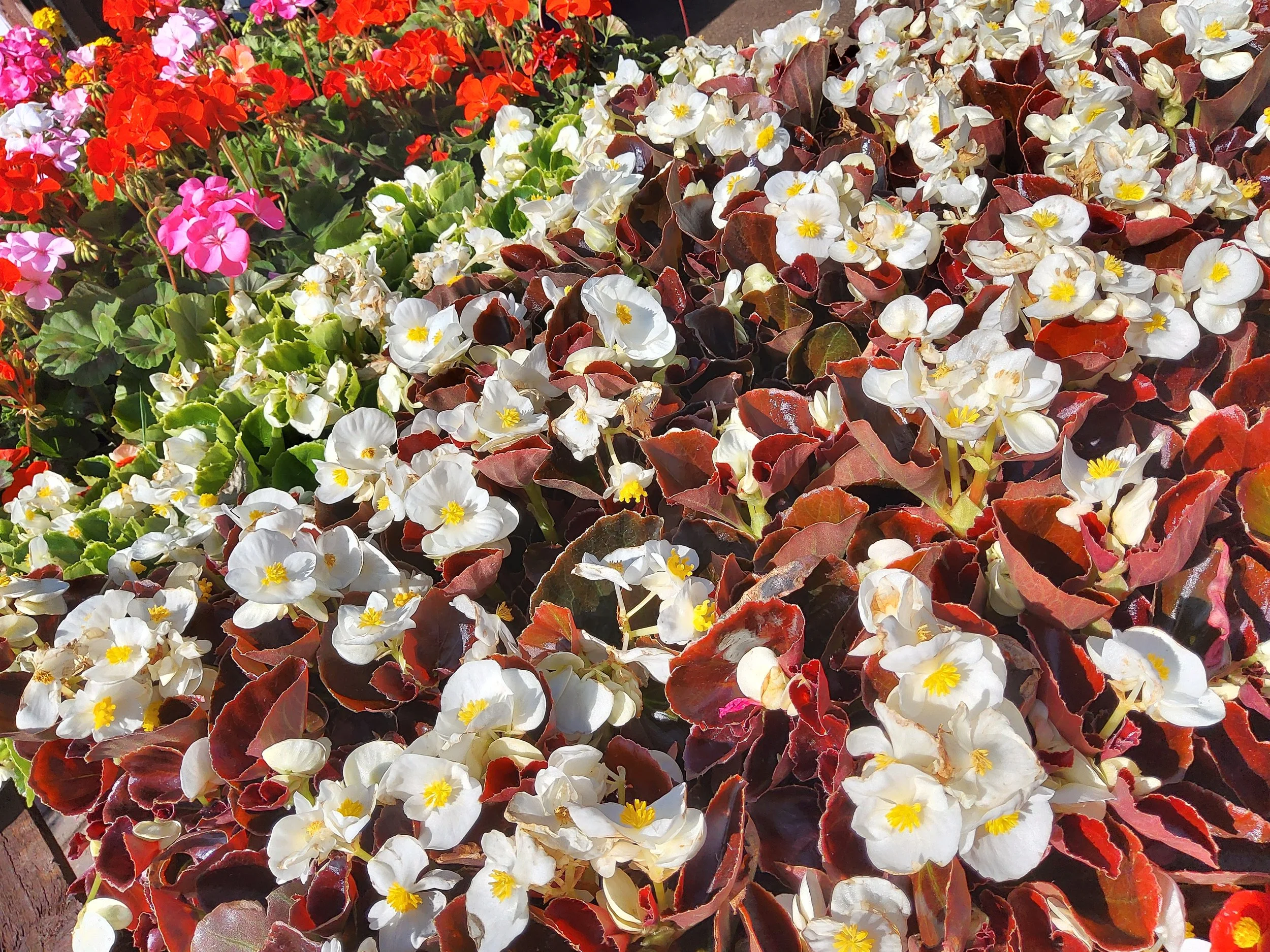
Why Feeding Matters!
Plants need nutrients to grow strong, produce flowers or fruits, and resist pests and diseases.
While healthy soil provides some nutrients, most gardens benefit from extra feeding, especially during active growth periods.
Proper feeding ensures:
Vibrant foliage
Bigger blooms
Tastier fruits and vegetables
Key Nutrients Plants Need
Nitrogen (N): Encourages leafy, green growth.
Phosphorus (P): Supports root development and flowering.
Potassium (K): Strengthens stems, improves disease resistance, and boosts fruiting.
Trace elements: Iron, magnesium, calcium, and others are essential for healthy foliage and flowers.
Types of Plant Feed
🌿 Slow-Release Fertilisers 🌿
Gradually release nutrients over weeks or months.
Ideal for shrubs, perennials, and lawns.
Examples: Roses, Hydrangeas, Azaleas (acid-loving).
💧 Liquid Feeds 💧
Fast-acting nutrients delivered in water.
Perfect for giving a boost during flowering or fruiting.
Examples: Tomatoes, Cucumbers, Pelargoniums.
🌾 Organic Feeds & Compost 🌾
Natural options like garden compost, well-rotted manure, or seaweed extract.
Improve soil structure while feeding plants.
Examples: Fruit trees, Blueberries (acid-loving), Herb gardens.
When to Feed Your Plants
Spring: Start feeding perennials, shrubs, and vegetables as they wake from dormancy.
Summer: Boost flowering and fruiting with regular liquid feeds.
Autumn: Feed shrubs and trees lightly to prepare them for winter.
Winter: Most plants are dormant — feeding is generally not required, except for winter crops or houseplants.
Tips for Successful Feeding
Always follow the instructions on fertiliser labels.
Avoid overfeeding – too much nitrogen can reduce flowers and fruit.
Water plants well after applying granular fertiliser to help nutrients soak into the soil.
Combine feeding with mulching for long-term soil health.
🌱 Extra Tip! 🌱
Observe your plants — yellowing leaves, poor flowering, or stunted growth often indicate a nutrient deficiency.
Adjust your feeding routine accordingly for a happy, thriving garden!



